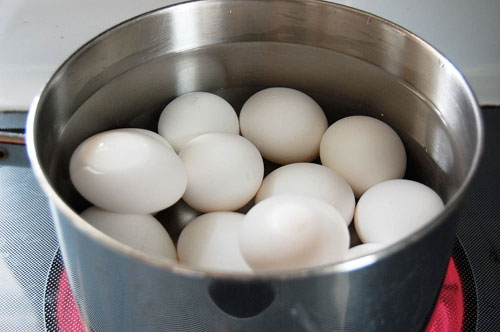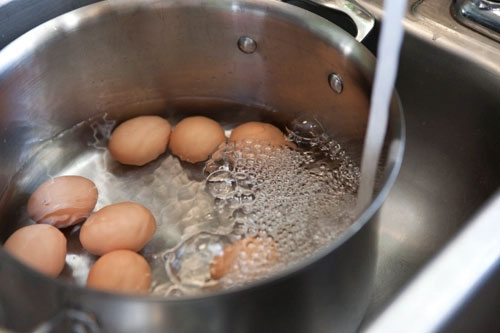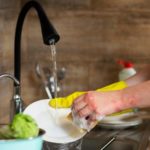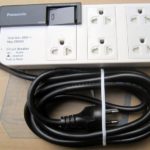Common Mistakes When Boiling Eggs
Eggs are an essential food in every household. Eggs are packed with nutrients and can be prepared in various ways depending on the dish.
The most common method is probably boiled eggs, which not only has a simple cooking process but also tastes delicious and is convenient to take away, making it a favorite of many people.
Although boiling eggs is very simple, sometimes mistakes can be made that cause the eggs to take longer to cook or lose their nutritional value.

Using the wrong size pot
Some homemakers put a lot of eggs in a pot that is too small, causing the eggs to cook unevenly and crack during the boiling process.
The solution is to use a pot that is suitable for the number of eggs you want to boil and only boil one layer of eggs.

Boiling with hot water
If you boil eggs with hot water, you should stop doing this because it will make the eggs easy to crack. The best way is to boil the eggs with cold water from the start. A small tip is that you can also add a little salt to the boiling water to prevent the eggs from cracking!
Boiling very fresh eggs
Fresh eggs can be difficult to peel, and the reason is that you boil them when they are too fresh. Therefore, for boiled eggs, you should use slightly older eggs. The reason is that when the eggs are left for some time, they lose some moisture through small pores in the shell and the air pocket at the larger end of the egg.
Moreover, the pH in the shell increases when left for a long time, making it easier to peel. You should buy eggs one to two weeks before eating them and store them in the refrigerator.
Overcooking the eggs
When the eggs are overcooked, the yolks will have grayish streaks, a sulfur smell, and the whites will be rubbery.
You should only put the eggs in a pot, add cold water, and bring it to a boil. Then remove the pot from the heat, cover it, and let it sit for 10 minutes for soft-boiled eggs or 15 minutes for medium-boiled eggs.
Not soaking the eggs in cold water
In theory, after boiling for the required time, if the eggs are not soaked in cold water, the residual heat will make the eggs overcook.
Soaking the boiled eggs in cold water completely helps them cool down and makes them easier to peel.
According to Giadinhvietnam





































